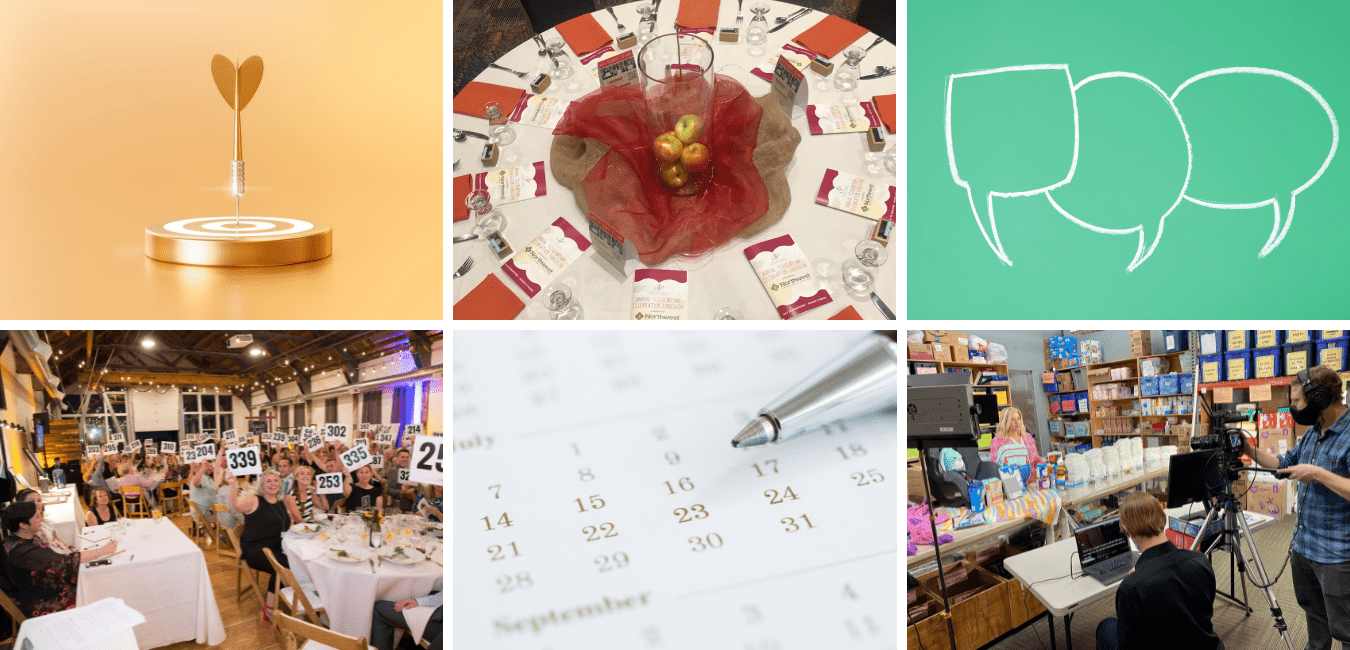Did you know that event planning is one of the top ten most stressful professions, ranking even higher than a firefighter, paramedic or surgeon? We are often asked what our secret is for remaining calm during an event. While planning an event can be very stressful, our job is to make sure we have thought through all the details of the event and can manage any last minute surprises. Here are our top five key elements to planning an event that will allow you to have a successful fundraiser and reduce your stress level.
Understand Your Goals
One of the first questions we ask clients when we begin an engagement is, “What are your goals for this event?” It is vital to know what your goals are before you begin planning. If this is a fundraising event, how much do you want and need to raise? Are you trying to raise awareness about your mission in the community? Are you rebranding? If you know your organization’s key goals before planning, you can ensure that every part of your event is optimized for success.
Know Your Target Audience
Knowing your audience will allow you to develop the best plan to communicate and connect with them, and will help you determine what type of event will most appeal to them. For example, don’t plan a highly technical virtual event if your audience isn’t even comfortable with Zoom. Don’t use snail mail to communicate if your audience is more tech-savvy. And offer a variety of ways to donate including old fashioned checks as well as newer options like bitcoin and Venmo. Knowing your audience and what appeals to them is the key to creating a successful fundraiser.
Create a Timeline
One of the first steps to planning an event is to create a solid timeline. We suggest including both large and small milestones to keep everything on track and to make sure that all deadlines are met. It’s also important to be conservative about deadlines, because events don’t always go as planned and having some cushion in your timeline will help keep things on track. Start with a very high-level strategic timeline and then make it more and more detailed as the planning process continues over the weeks and months.
Communicate, Communicate, Communicate
Communication with your key stakeholders is key to creating an event that is stress-free and successful. Stakeholders include your venue, audio-visual vendor, emcee, caterer and speakers. Make sure you have established a solid line of communication so that nothing falls through the cracks. Your stakeholders should know your expectations and their duties. You should provide them with a detailed timeline and script for the day of the event. We recommend meeting with each stakeholder separately before the event so that you can define expectations. For example, with our emcee, we hold a run-through the week prior to the event so they understand all details for the event and can ask questions.
Weave your Mission and Message Throughout Your Event
Most organizations only use their formal program to talk about their mission and fail to use other parts of the event to promote their good work. From the time your guests arrive at the venue until the time they check out, you have many opportunities to creatively tie your mission into the elements that your guests experience. At one event, we handed guests cards with their table number on one side and a story of the organization’s impact on the other. Each story card was different and we encouraged guests to share their story cards at their tables. For another event, we placed toilet paper as a centerpiece to signify the types of items that the organization provides to the clients they serve.
If you want to take the stress out of your next event, let’s connect!

